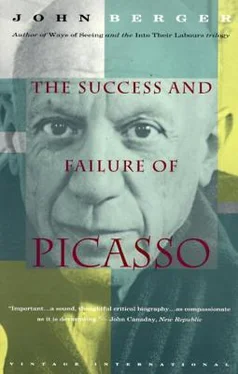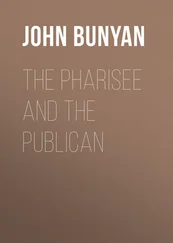It is not itself — it has no self — it is everything and nothing — it has no character — it enjoys light and shade — it lives in gusto … a poet is the most unpoetical of anything in existence, because he has no identity; he is continually [informing] and filling some other body.
I myself have heard Yehudi Menuhin say words to very much the same effect. And Picasso, at the age of eighty-two, has just said: ‘Painting is stronger than I am. It makes me do what it wants.’
The fact that Picasso was a child prodigy has influenced his attitude to art throughout his entire life. It is one of the reasons why he is so fascinated by his own creativity and accords it more value than what he creates. It is why he sees art as though it were part of nature.
Everyone wants to understand art. Why not try to understand the songs of a bird? Why does one love the night, flowers, everything around one, without trying to understand them? But in the case of painting people have to understand. If only they could realize above all that an artist works of necessity, that he himself is only a trifling bit of the world, and that no more importance should be attached to him than to plenty of other things which please us in the world, though we can’t explain them.
This is partly a reasonable protest against all the pretentious intellectual constructions that have surrounded so much art in our time. But it is also a justification of the nature of his own genius as he sees it. He makes art like a bird sings. Understanding has nothing to do with it — indeed understanding is a hindrance, almost a threat.
I can hardly understand the importance given to the word research in modern painting. In my opinion to search means nothing in painting, to find is the thing.
This — perhaps the most quoted of all Picasso’s remarks — has perplexed people ever since he made it in 1923. It is clearly untrue of modern painting in general. It was undeniably a spirit of research which inspired Cézanne, Seurat, Mondrian, Klee. Did Picasso say it simply to shock? Is it no more than another way of making the commonplace observation that good intentions aren’t enough? No. Like everything that Picasso says it is truer for him than seems likely. Picasso does not make paradoxes for their own sake — it is rather that his whole experience is paradoxical. He believes what he says because that is how it happened to him. He himself achieved art without searching. He found his own genius without looking for it. It happened apparently instantaneously, without any preparation on his part.
The several manners I have used in my art must not be considered as an evolution or as steps towards an unknown ideal of painting. All I have ever made was made for the present, and with the hope that it will always remain in the present. I have never taken into consideration the spirit of research. When I have found something to express, I have done it without thinking of the past or the future.… I have never made trials or experiments. Whenever I had something to say, I have said it in the manner in which I have felt it ought to be said. Different motives inevitably require different methods of expression. This does not imply either evolution or progress, but an adaptation of the idea one wants to express and the means to express that idea.
Here is the secret of the extraordinary intensity of Picasso’s vision. He has been able to see and imagine more suffering in a single horse’s head than many artists have found in a whole crucifixion.

9 Picasso. Head of a Horse. 1937

10 Rubens. Christ Crucified Between Two Thieves. 1620
He gives himself up utterly to the present idea or moment. The past, the future, plans, cause and effect — all are abandoned. He submits himself totally to the experience at hand. All that he has done or achieved only counts in so far as it affects what he is at that moment of submission. This is the way in which — ideally at least — Picasso works. And it is very close indeed to the way in which the prodigy submits to the force that plays through him.
Such is the positive result of the mystery at the centre of which Picasso found himself as a child. By respecting this mystery he has become the most expressive artist of our time. But there was also a negative result — which may have had as much to do with his childhood success as with the mystery. Picasso denies the power of reason. He denies the causal connexion between searching and finding. He denies that there is such a thing as development in art. He hates all theories and explanations. It would be understandable if he ignored all these intellectual considerations when it came to respecting and responding to the mystery of his own powers. But he goes further than this. He hates reasoning in general and despises the interchange of ideas.
There ought to be an absolute dictatorship, a dictatorship of painters, a dictatorship of one painter — to suppress all who have betrayed us, to suppress the cheaters, to suppress the tricks, to suppress mannerisms, to suppress charms, to suppress history, to suppress a heap of other things. But common sense always gets away with it. Above all let’s have a revolution against that! The true dictator will always be conquered by the dictatorship of common sense — and perhaps not!
This is partly a joke. But nevertheless it reveals an uneasiness. He wants everything to be beyond argument. He wants to be beyond the reach of evidence .
They should put out the eyes of painters [he has said], as they do to goldfinches to make them sing better.
It is as though, in principle, he is frightened of learning. (It is perhaps relevant to note in passing that he is one of the very few modern painters who has never taught.) He is prepared to learn a new skill — pottery, lithography, welding — but as soon as he has learnt the technique, he needs to overthrow and disprove its laws. From this need comes his marvellous power of improvisation and his wit, which respects nothing. Yet the need, however exhilarating the results, still betrays a certain defensiveness. I cannot explain this. I can only tentatively suggest a possibility. It seems to me odd that the story of Picasso’s father giving his palette and brushes to his son, aged fourteen, and swearing never to paint again, has never been considered more seriously. If it is true, it is likely to have been a deeply formative experience for the young Picasso.

11 Picasso. Portrait of Artist’s Father. 1895

12 Picasso. Portrait of Artist’s Mother. 1895
Is it likely that a boy will ever believe in progress step by step when at the age of puberty he is suddenly told by his father that he deserves to take his father’s place and that his father is going to step down? Since this is what every boy wants to happen, is he not more likely to believe in magic? Yet at the same time, and again because he has wanted it to happen, is he not likely to feel guilty? The most obvious relief from his guilt is then to tell himself that his father’s patience and slow development and experience do not, by the very nature of things, count for anything: that the only thing which can count is the mysterious power he feels within himself. But this relief can only be partial: he will remain frightened of explanations and of discussion with and between other people of the way he overthrew his father.
Читать дальше
















